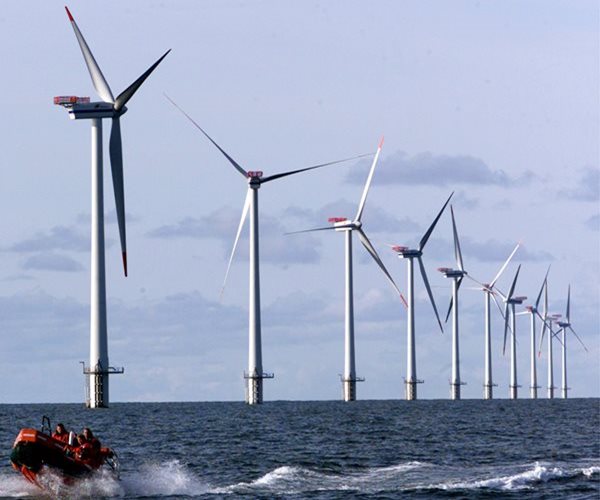[ad_1]
Germany’s RWE won rights to 102,480 acres (41,472 hectares) off Louisiana — the lowest winning bid for a federal offshore wind lease at auction since the Obama administration — while the other two lease areas on offer off Texas received no bids, according to results posted online by the U.S. Bureau of Ocean Energy Management.
The auction was by far the weakest of the four held since President Joe Biden took office in 2021 pledging to accelerate the industry as part of his climate change agenda.
Biden’s administration wants to deploy 30 gigawatts (GW) of offshore wind by 2030, and the Interior Department said the three offered Gulf leases combined had the potential to account for more than 10% of that amount.
“It is striking just how bad the economics clearly must be in order for two of the three sites to remain unsold … and for the site that was sold to go for such a low price,” said Alon Carmel, a partner at PA Consulting who advises offshore wind companies.
A spokesperson for RWE said the sale was “a great opportunity to enter the Gulf’s offshore wind industry at the ground floor” and noted that the first lease sales in the Atlantic had similar participation and prices.
RWE is among the world’s largest offshore wind developers, with an extensive portfolio in Europe, and has also secured leases off the coasts of California and New York.
French energy giant TotalEnergies, which is developing offshore wind projects in other U.S. regions, is one of the companies that elected to sit out the sale, despite having qualified to bid.
“Our assessment factoring in wind speeds, competition from other onshore renewables, and competitive power market conditions does not, at this time, justify submitting an offer,” a spokesperson said in a statement.
INTEREST ELSEWHERE
Offshore wind lease sales off New York and New Jersey in February 2022 drew billions of dollars of bids, while more recent auctions for areas off the coasts of the Carolinas and California drew hundreds of millions of dollars.
Many of those states have passed laws that require utilities to buy power from offshore wind projects – mandates considered critical for a technology that is estimated to produce electricity at twice the cost of a natural gas plant.
The Gulf’s lower wind speeds, soft soils and hurricanes are considered challenges to the industry. The Southeast also has low power prices that could make it harder for higher-cost offshore wind generation to compete for electricity contracts.
The sale also comes at a challenging time for offshore wind.
In recent months, owners of several planned projects in the Northeast have sought to renegotiate or cancel power delivery contracts due to soaring cost inflation. Many of those companies had been qualified to bid on Gulf of Mexico leases.
RWE said the Louisiana lease was attractive because the state has strong existing coastal port and supply chain infrastructure and a goal to install 5 gigawatts of offshore wind capacity by 2035. Texas does not have an offshore wind target.
“Today’s auction results show the important role state public policy plays in offshore wind market development,” Liz Burdock, CEO of the Business Network for Offshore Wind, said in a statement.
BIDEN ADMIN’S APPLAUSE
The sale was cast by the Biden administration as a major milestone for the industry.
“Today’s lease sale represents an important milestone for the Gulf of Mexico region — and for our nation — to transition to a clean energy future,” said Bureau of Ocean Energy Management (BOEM) Director Elizabeth Klein.
She said the Louisiana lease had the potential to power about 435,400 homes and create hundreds of jobs.
According to a BOEM document, fifteen companies were qualified to bid at the sale.
They included offshore wind development arms of European energy companies Equinor and Shell, who also have oil and gas operations in the Gulf.
© 2023 Thomson/Reuters. All rights reserved.
